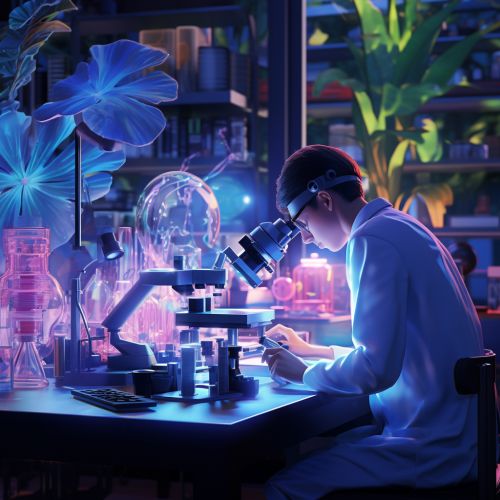Industrial Microbiology
Introduction
Industrial microbiology is a branch of microbiology that applies microbial sciences to create industrial products in mass quantities. There are multiple ways industrial microbiology can be used in industries such as pharmaceuticals, food and beverage, and chemical industries. The discipline of industrial microbiology merges microbiology with biochemistry, chemistry, and engineering to produce items of economic value.
History
Industrial microbiology has its roots in the late 19th and early 20th centuries when significant advances were made in the fields of microbiology and immunology. Scientists like Pasteur and Koch made significant contributions to our understanding of microorganisms and their potential for industrial applications.
Microorganisms in Industrial Microbiology
Microorganisms play a vital role in industrial microbiology. These include bacteria, fungi, and viruses. Each of these microorganisms has unique properties that make them suitable for specific industrial applications. For instance, bacteria such as E. coli and B. subtilis are commonly used in the production of enzymes and other bioproducts.
Applications
Pharmaceutical Industry
Industrial microbiology plays a crucial role in the pharmaceutical industry. Microorganisms are used in the production of antibiotics, vaccines, and other drugs. For instance, the antibiotic penicillin is produced by the fungus P. chrysogenum, while vaccines for diseases such as influenza are often produced using chicken eggs or mammalian cells.
Food and Beverage Industry
In the food and beverage industry, industrial microbiology is used in the production of a variety of products including beer, wine, cheese, yogurt, and bread. Microorganisms such as yeast and bacteria are used in the fermentation process to produce alcohol and other by-products.
Chemical Industry
In the chemical industry, microorganisms are used to produce a variety of chemicals and enzymes. These include organic acids, amino acids, and biofuels. Industrial microbiology also plays a role in the production of biodegradable plastics and biofuels.
Challenges and Future Directions
Despite the many benefits of industrial microbiology, there are also challenges. These include the need for improved strain development, process optimization, and waste management. Looking forward, advancements in genetic engineering and synthetic biology are expected to drive the future of industrial microbiology.
See Also
- Microbiology
- Biochemistry
- Chemistry
- Engineering
- Pharmaceutical Industry
- Food and Beverage Industry
- Chemical Industry


